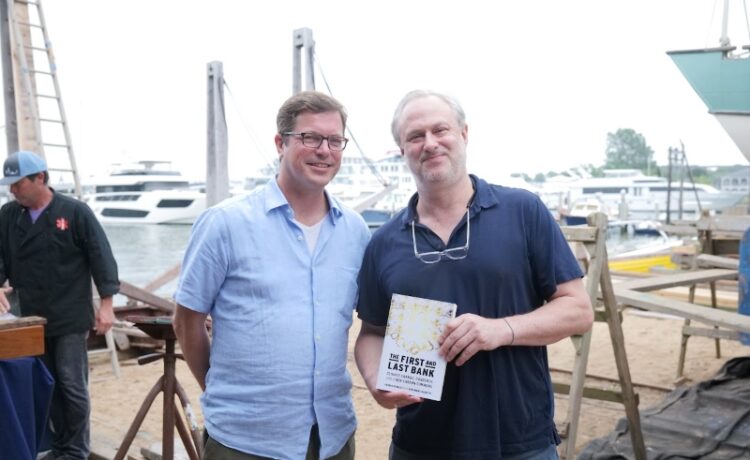With a backdrop of wooden sail boats bobbing in the harbor, oyster being shucked and the soothing sound of live folk music, Gannon and Benjamin’s boatyard waterfront was the place where local families, friends, and partners in preserving the environment joined to celebrate the launch of the new book “The First and Last Bank,” written by Gustav Peebles and Benjamin Luzzatto.
The book proposes a radical solution to climate change and one idea is a new way of looking at carbon as currency rather than waste. The book argues that by drawing in atmospheric carbon through burning charcoal, it can be used as a foundation for a new form of currency, incentivizing carbon sequestration and creating a more sustainable economy.
“Biochar is just one method, the reason we focus on it is because it serves as a liquid asset, and since it’s sown into soils it’s a way for us to tell the story of the Earth being our ultimate reserve, and being our bank,” said co-author Benjamin Luzzatto. “When we get in touch with that it resacralizes nature in a way that it becomes so priceless that we could base the flow of currency on that.”
“The forest is the most sacred thing, just like gold in a different era was the most valuable thing and our money was based on it. Why cant our money be based on living beautiful thriving sacred nature?” added Luzzatto.
Joined by wine, oysters, and sandwiches, guests enjoyed community company, and discussions from co-authors Peebles and Luzzatto about the value in preserving the environment through carbon sequestration.





